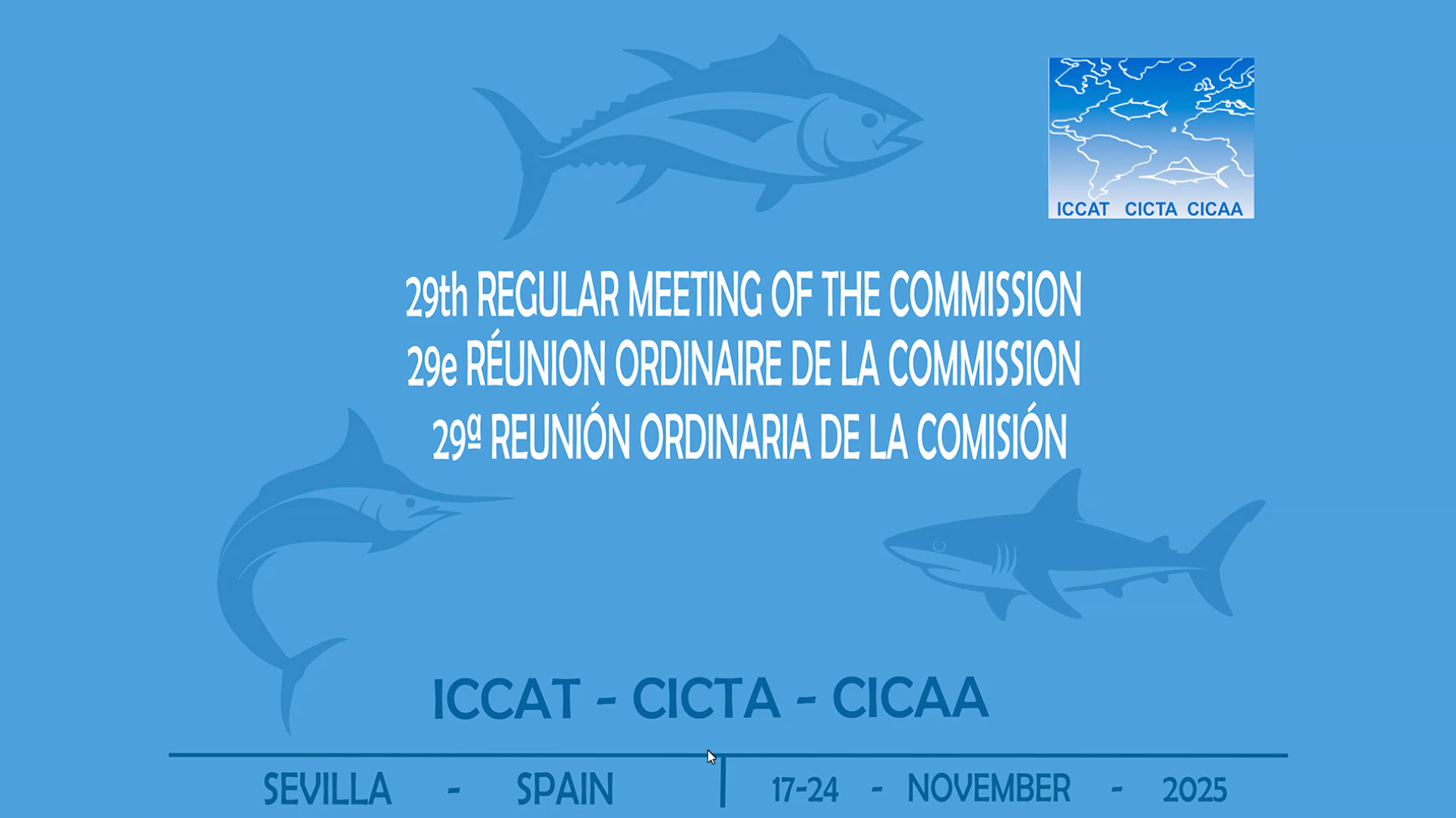The International Commission for the Conservation of Atlantic Tunas (ICCAT) recently concluded its 29th Regular Meeting held as a hybrid session in Seville, Spain. ICCAT oversees the conservation and management of a variety of Atlantic marine species, including tunas, swordfish, marlin and sharks, and adopts measures to minimize bycatch of turtles and seabirds associated with these fisheries.
During the 29th meeting, the Total Allowable Catches (TACs) and quotas for several species groups such as tunas and marlins were re-negotiated in light of improved management procedures. Twelve new Recommendations and three resolutions were adopted, which covered relevant issues on Atlantic tuna and tuna-like species conservation and fisheries management.
Importantly for Barbados, Belize, Grenada, St. Vincent and the Grenadines and Trinidad and Tobago, penalties accrued on the marlin species over the years were revised in order to ensure a fair and equitable conservation burden sharing arrangement in which Caribbean Small Island Developing State (SIDS) Contracting Parties' fisheries can continue to operate viably, while ensuring cooperation for sustainable use.

As Barbados continues to make strides through the introductions of technologies such as Electronic Monitoring Systems (EMS) and Vessel Monitoring Systems (VMS), and introduces the use of circle hooks on vessels, the country is ensuring that is ahead of the curve in regards to international fishing standards and ICCAT compliance.
Discussions also surrounded ICCAT's role in the face of the Biodiversity Beyond National Jurisdiction (BBNJ) agreement, which is set to come into force on January 17th, 2026 after its ratification by 60 States. The BBNJ agreement aims to address the growing biodiversity crisis for ocean life outside the Exclusive Economic Zone (EEZ). Therefore, as fishing is an economic activity that often trancends the bounds of EEZs, the Comission of ICCAT introduced a new Resolution to enhance preparation for the implementation of the agreement.

